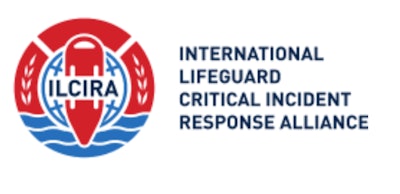
A new not-for-profit organization is hoping to help lifeguards recover from trauma experienced during critical incidents.
The International Lifeguard Critical Incident Response Alliance notes in its mission statement that the organization "envisions a world where aquatics management teams, lifeguards, and allied support staff are fully equipped with comprehensive education, training, and consultation services, enabling them to resiliently navigate and manage the aftermath of critical incidents."
While lifeguards are asked to perform the duties of an emergency responder, they do not typically have the same resources at the disposal that those in other fields might have when tragedy strikes. Police and firefighters typically have access to specialists trained to help those professionals process workplace trauma.
“I’ve had aquatics directors say ‘I don’t know what to do,’ ” Tyler Anderson, executive director of the ILCIRA, who also works as an aquatics director and has experience in critical incident response and emergency management for airline companies, told Aquatics International. “I’ve had aquatics managers say they were knocking on doors of clergy [for help] ... It’s known that we need these services and all facilities should have a plan, but there’s not a real clear way to address it.”
Anderson said that the aquatics industry can do more to prepare lifeguards for what they might experience in the event of a critical incident. “I think we need to look at this not only from the perspective of response — we have to build resiliency into our teams,” Anderson said.
Anderson told AI that the ILCIRA will launch in phases. For this year, Anderson and other officials plan to present at conferences and events to educate professionals about the ILCIRA, critical incident management, as well as to seek potential trainees. Next year, the group plans to launch a pilot program in the Northeast U.S. and Alberta, Canada. Guided by data from these initial programs, the organization will model its work in other regions.





































